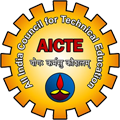.png)
Air Traffic Controllers are an integral part of the aviation industry. They play a pivotal role in coordinating the movement of aircraft thereby ensuring that they maintain safe distances from each other while flying. Moreover, they guide pilots during takeoff and landing, manage the flow of aircraft in and out of the airport, ensure that the planes reach their destination without facing any delays or issues. Air Traffic controllers use radar, visual references, computers to monitor and guide the aircraft in the skies and ground traffic at airports. During an emergency, the air traffic controller keeps in constant touch with the concerned authorities and alerts the emergency response staff as soon as possible. The average starting salary of an air traffic controller is INR 4, 00,000 (approx.) per annum. So, in a nutshell, we can say that they are the ones who play a very important role in maintaining the safety of the passengers and the crew members of an aircraft.
Aspirants who dream of becoming an air traffic controller can pursue aviation courses like B. Tech in Automobile Engineering, B. Tech in Aerospace Engineering, B.Sc. in Airlines, and Airport Management to turn their dreams into the reality of starting their journey in the aviation industry with flying colors.
Skills required to become an Air Traffic Controller
Aspirants who are planning to become air traffic controllers must be vigilant and have quick problem-solving skills.
They must possess strong multi-tasking skills, should be focused, and have good concentration power because they are responsible for the safety of aircraft, its crew, and passengers.
Aspirants must be flexible and reliable because air traffic controllers need to work various shifts like morning, night, evenings, and weekends.
Eligibility to become an Air Traffic Controller
Aspirants must have a bachelor’s degree (B.Sc. in Science) with physics and mathematics as mandatory subjects. B.Tech /B.E degree holders can apply for the post of Junior Executive Controller (ATC).
The minimum aggregate required for applying for ATC is 60%.
For UG Courses
Aspirants must have a B.S.C in Science or B.Tech/B.E degree with a minimum aggregate of 60%
Aspirants need to appear in a written, voice, and medical test
For PG Courses
Aspirants must have a bachelor’s degree in their respective fields.
Must have some experience working in the aviation industry
Career opportunities after pursuing air traffic controller related courses
Aspirants can also get positions like Approach and Departure Controller, Tower Controller, En route Controller besides Air Traffic Controller. Let us have a close look at these positions too
Approach and Departure Controller
The duties and responsibilities of an approach and Departure Controllers are to provide clearance to the aircraft to enter controlled airspace and hand off control of an aircraft to en route controllers. They provide information related to weather and other important announcements to the pilots. They use radar equipment to monitor flight paths. The average starting salary for this position is INR 4, 00,000 (approx.)
En route Controller
An En route controller monitors the aircraft once it leaves the airport space. They work separately at air route traffic control centers located throughout the country. The centers are usually not located at the airports. The average starting salary for this position is INR 3,00,000 (approx.)
Tower Controller
They guide the movement of vehicles on runways, taxiways and provide clearance to the pilots during takeoff or landing. Moreover, they also supervise flight plans.
This blog tells us everything we need to know to become an air traffic controller and soar high with success in the aviation industry.
 CCPTR,
CCPTR, 

 National Skill Development Corporation
National Skill Development Corporation Ministry of Education
Ministry of Education MoE's Innovation Cell
MoE's Innovation Cell Institution’s Innovation Council
Institution’s Innovation Council AICTE
AICTE


Leave a comment